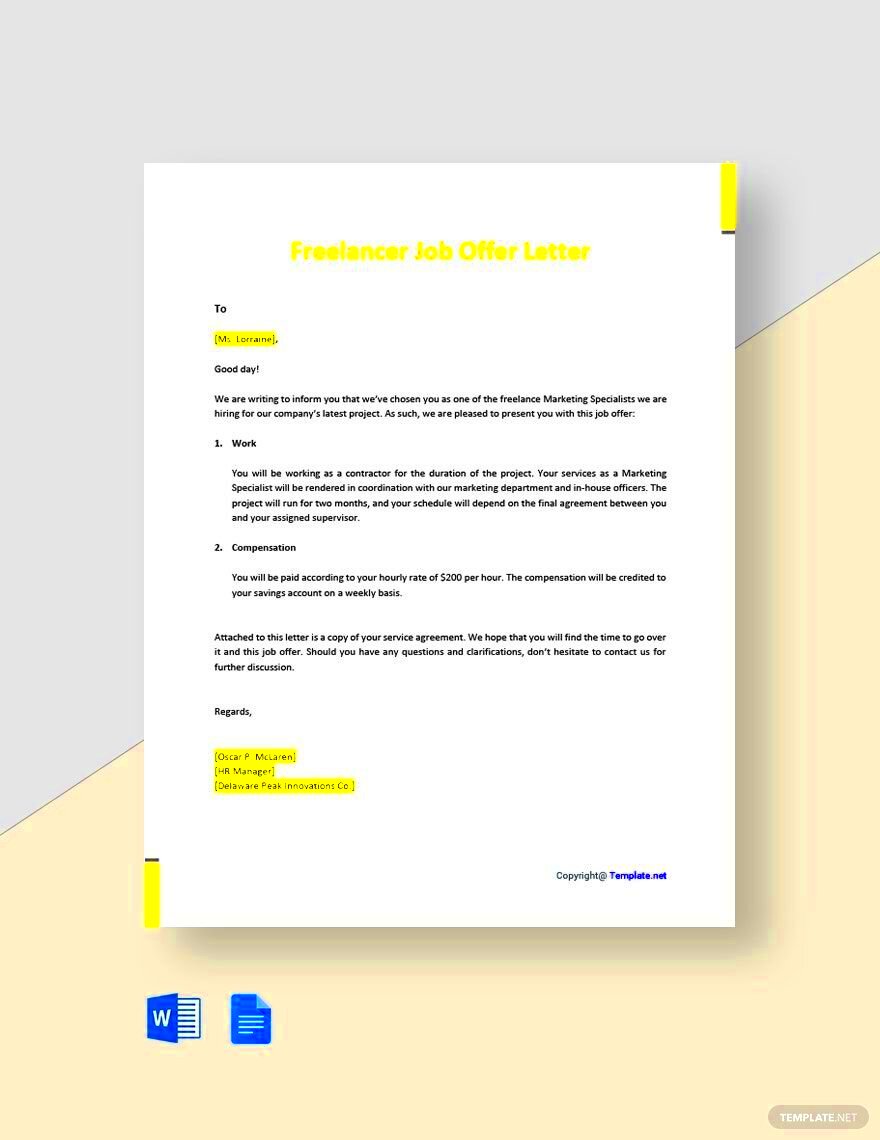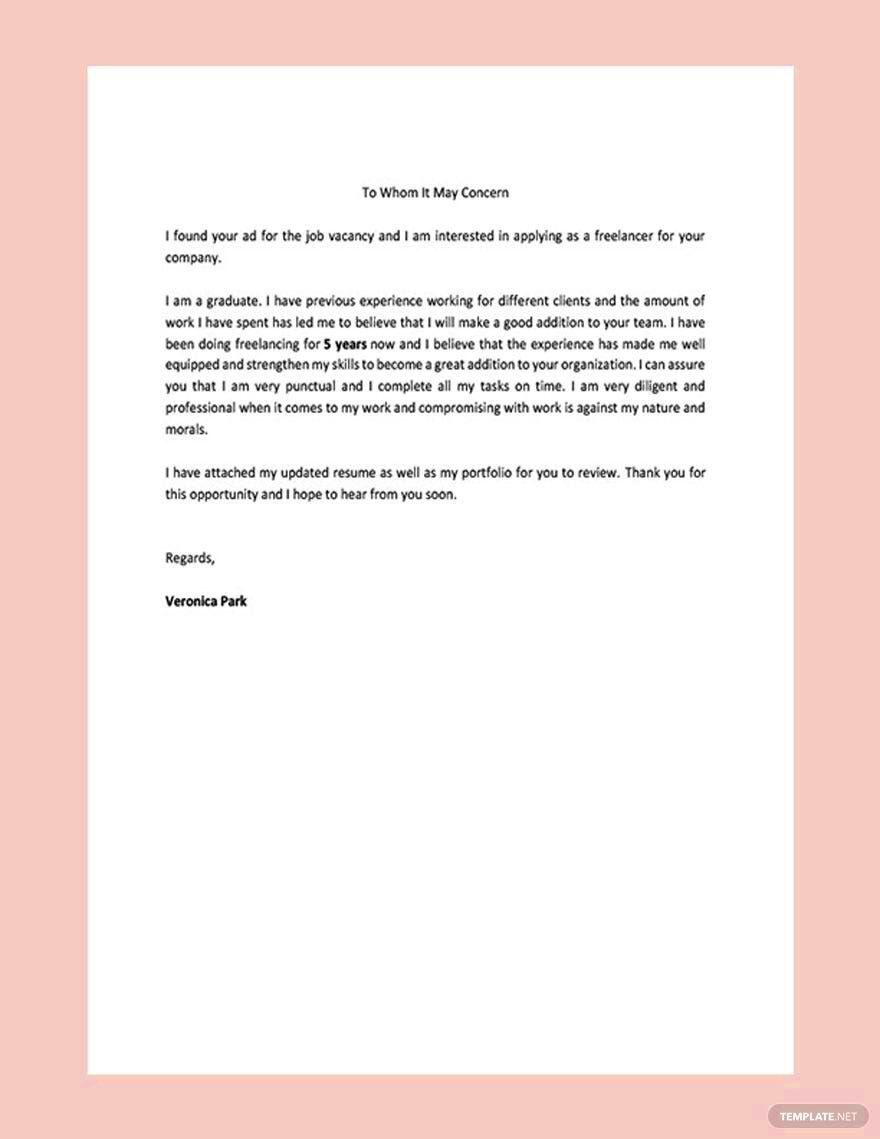Freelancing can be an exciting adventure; it all starts when you receive a freelance proposal. In this case, the customer is sending you an offer to work on a particular job or project. In order to make sure that the opportunity matches your skills, availability and expectations understanding the elements of a freelance offer is very important. It’s not only about money; it’s about compatibility in general.
For instance, a good freelance job offer contains:
- Project Description: A detailed explanation of what the client needs.
- Timeline: When the project is expected to start and finish.
- Payment: How much you will earn and the payment method.
- Requirements: Skills or resources you need to complete the project.
- Client Expectations: The client's goals and what they hope to achieve.
Evaluating the Offer Carefully

When a freelance offer comes your way, it is essential to look into it closely. Not all offers are equal; you should ensure that the project matches your goals and skills. Therefore, this is how you should carry out this evaluation:
- Assess the Project Scope: Is the project well-defined? Understanding the requirements helps you determine if it’s something you can handle.
- Consider the Compensation: Does the payment match the effort and time you will invest? Compare it with industry standards.
- Check the Timeline: Can you realistically meet the deadlines? Don’t rush into accepting an offer that doesn’t fit your schedule.
- Evaluate the Client’s Reputation: Research the client. Look at their previous projects and reviews from other freelancers.
- Think About Your Long-Term Goals: Does this project help you build your portfolio or advance your career?
Also Read This: How to Change Your Email in Fiverr
Communicating with the Client

Effective communication in response to a freelance offer is a key to success; it will shape your professional relationship and can help to remove all ambiguities. So, here’s how you should contact the client:
- Ask Questions: If anything is unclear in the offer, don’t hesitate to ask. Questions show that you’re interested and engaged.
- Clarify Expectations: Ensure that you both have a shared understanding of the project goals and deliverables.
- Discuss Payment Terms: If the payment terms are unclear, ask about when and how you will be paid.
- Establish Communication Preferences: Agree on how you will stay in touch during the project—through email, messaging apps, or video calls.
- Be Professional: Maintain a friendly yet professional tone in all communications. It builds trust and shows that you’re serious about the work.
Also Read This: Understanding How Payment Works on Fiverr
Confirming Your Availability
It is essential to check your availability for the project before accepting a freelance job. This ensures that you can finish the work on time and to required standards without interfering with what else you are doing. In this respect, your calendar is an important factor to consider when making decisions.
You can do the followings to validate your online time:
- Review Your Current Commitments: Look at your existing projects and deadlines. Make sure you have enough time to dedicate to the new offer.
- Consider Time Zones: If the client is in a different time zone, factor that into your availability. Will you be able to communicate and collaborate effectively?
- Assess the Project Timeline: Understand the expected start and end dates. Are they realistic for you? If not, discuss this with the client.
- Be Honest: If you have concerns about your availability, communicate them openly. It’s better to discuss this upfront than to struggle later on.
- Flexibility: If you can adjust your schedule or work hours, let the client know. This can make your proposal more attractive.
Also Read This: How to Review a Freelancer on Fiverr
Negotiating Terms If Necessary
There are certain occasions when the freelance offer might not suit the expectations or necessities of an individual. That is the point at which a negotiation comes into play. As such, it is quite acceptable to talk about and change terms for both parties’ advantages.
The following are some sectors that might interest you:
- Rate of Pay: If you feel the compensation doesn’t match the work, discuss it respectfully. You can provide examples of industry standards to support your case.
- Deadlines: If the timeline feels too tight, don’t hesitate to ask for an extension. Offer a new timeline that works for both of you.
- Project Scope: If the project seems to have grown beyond its initial scope, discuss how that impacts the payment and deadlines.
- Payment Schedule: You can negotiate when and how you get paid. For instance, you might ask for a deposit before starting work.
- Additional Resources: If the project requires specific tools or software, ask if the client will cover those costs.
Also Read This: How Much Money Can You Make on Fiverr?
Accepting the Offer Formally
You must formally accept the offer once you have reviewed it, confirmed your availability, and negotiated any necessary terms. A proper acceptance makes things clear and sets the tone for professionalism in any project.
Here be the ways how to accept;
- Send a Written Acceptance: Whether it’s through email or a project management tool, provide a clear, written acceptance. Include key details to confirm understanding.
- Restate Key Terms: Briefly outline the main aspects of the offer, such as the project scope, payment, and deadlines. This ensures everyone is on the same page.
- Thank the Client: Express your appreciation for the opportunity. A simple thank-you can go a long way in building a positive relationship.
- Ask for Any Necessary Documents: If there are contracts or agreements to sign, request them. Make sure you review these documents carefully.
- Set Up a Start Date: Confirm the date you will begin working on the project. It helps both you and the client to plan accordingly.
Also Read This: How to Successfully Use Fiverr: A Comprehensive Guide
Preparing for the Project
The immediate step after accepting a freelance contract is to get ready for the job. This part is important as it makes sure that you start off well and give out top-notch results. If done well, this preparation will consume little time, boost your efficiency and ensure desired results are achieved.
Below are several preparedness actions:
- Review the Project Brief: Go through the project details thoroughly. Understand the client’s goals, requirements, and expectations to ensure you’re aligned.
- Research: If the project requires specific knowledge or skills, take the time to research and brush up on what you need. This might include learning new tools, studying industry standards, or analyzing competitor work.
- Create a Timeline: Develop a personal timeline that outlines your milestones and deadlines. Break the project into smaller tasks to make it more manageable.
- Gather Resources: Collect all the materials, tools, or software you need to start the project. This might include graphic design tools, writing software, or relevant reference materials.
- Set Up Communication Channels: Confirm with the client how you’ll communicate during the project. Whether through email, chat apps, or project management tools, being clear about communication helps in maintaining a smooth workflow.
Also Read This: How Much Does It Cost to List on Fiverr?
Frequently Asked Questions
艱難的意見問題 – The rollercoaster ride of freelancing comes with numerous inquiries regarding project preparation and acceptance of offers. This piece addresses some of such queries that are frequently asked.
- What should I do if I feel overwhelmed by the project? It's essential to communicate with your client. If you feel the project is too much, discuss your concerns openly and suggest adjustments.
- Can I negotiate my rate after accepting the offer? Generally, it’s best to negotiate before accepting. However, if the scope changes significantly, you can bring it up with the client.
- How can I ensure timely payments? Discuss payment terms upfront and consider setting milestones for payments throughout the project.
- What if the client is unresponsive? If you haven’t heard back in a reasonable time, don’t hesitate to send a follow-up message. Clients appreciate proactive communication.
- Should I always ask for feedback? Yes! Regularly asking for feedback helps you stay aligned with client expectations and improves your work.
Conclusion
Families of girls said they were notified last week about the decision, although they wished they had had some warning.
The outcomes of any job might be perceived entirely differently by various individuals. This is the reason why one needs to stay very assertive when it comes to confirmation of availability and revision of term if required. By so doing, relationships between different parties engaged in one project will always remain cordial leading to better results in terms of work done. It is important that as we embark on this venture, we communicate openly at all times and ask for feedback regularly. This not only improves on the quality of our output but also helps in building our clients’ trust in us. All the best as you begin your life as a freelancer!




